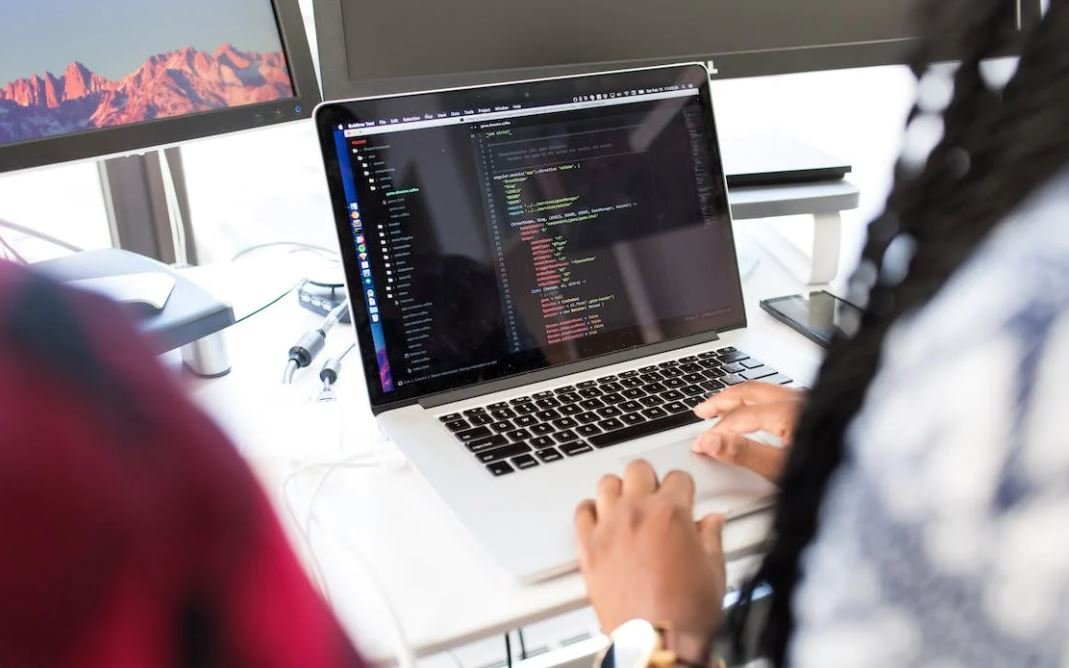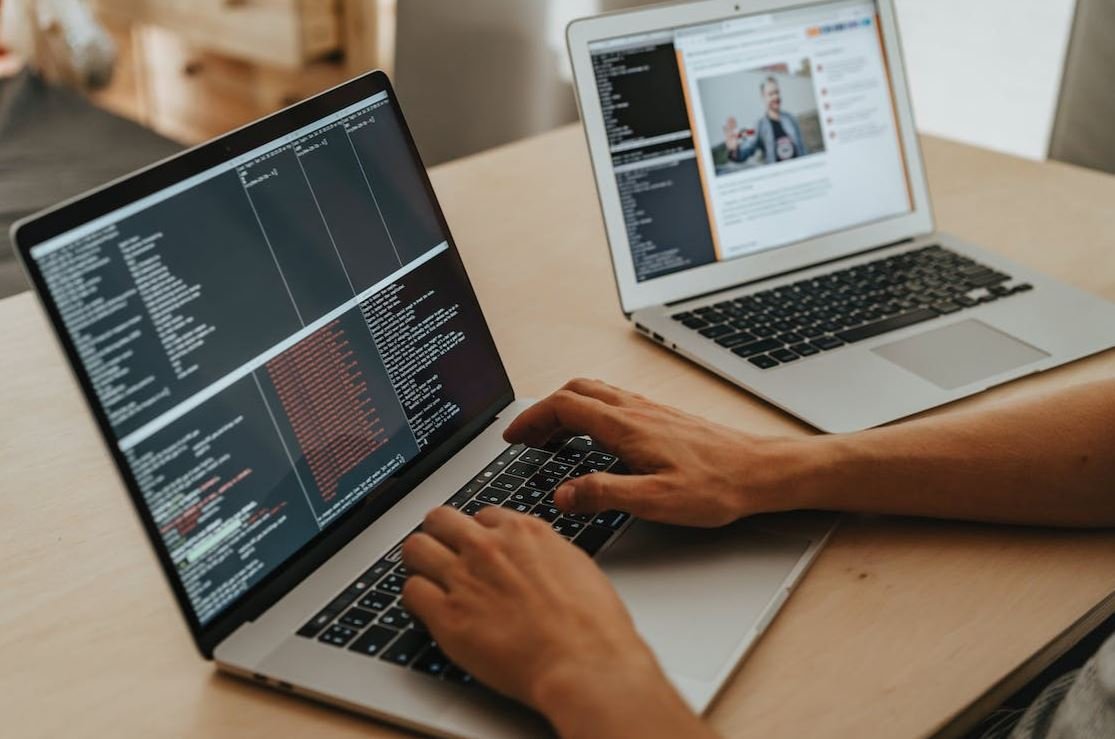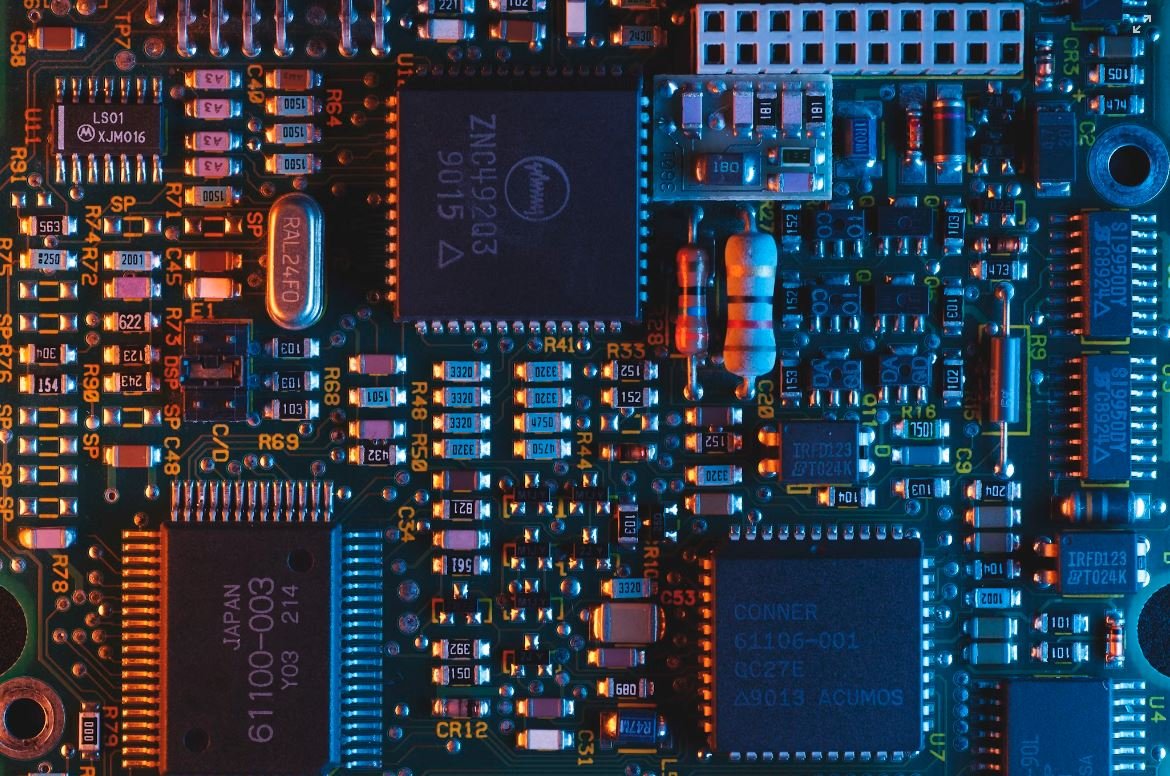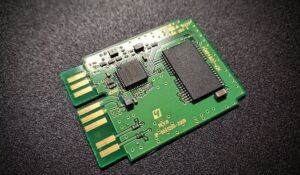AI Music Opinion Article
Artificial intelligence (AI) has permeated numerous industries, ranging from healthcare to finance. One area where AI is making significant strides is in the world of music. AI technology is being used to compose music, analyze musical patterns, and even create virtual musicians. While some people embrace this emerging trend, others have concerns about the impact AI music will have on human creativity and the future of the music industry. In this article, we will explore the current state of AI music, its potential benefits, drawbacks, and what it means for the future of music.
Key Takeaways
- AI music technology is transforming the way music is composed, analyzed, and performed.
- Artificial intelligence can aid musicians in generating new ideas and expanding their creative possibilities.
- AI-generated music raises questions about authenticity, human creativity, and the role of technology in the arts.
- There are concerns that AI music could replace human musicians and adversely impact the music industry.
- Finding a balance between AI and human creativity may be key for the future of music.
Artificial intelligence has proven to be a valuable tool for musicians and composers. *Using AI algorithms, musicians can generate complex musical compositions with just a few inputs, saving time and stimulating creativity.* AI software can analyze vast amounts of musical data, identify patterns, and create unique compositions based on those patterns. This technology expands the creative possibilities for musicians by offering them new ideas and styles to explore.
The use of AI in music has prompted debates about authenticity and human creativity. Some argue that AI-generated music lacks the emotional depth and genuine creativity that comes from human composers. *However, others contend that AI can be a collaborative tool that enhances human creativity rather than replacing it.* By working in tandem with AI technology, musicians can explore new frontiers and push the boundaries of their artistic expression.
The Impact on the Music Industry
The rise of AI music has raised concerns about how it will affect the music industry. *While AI can generate music efficiently and at a large scale, it also poses a threat to human musicians and composers.* There is a fear that AI-generated music will replace human musicians, leading to job loss and a decline in the music industry as we know it.
It is important to note that AI is still a tool created by humans, and it is only as good as the data it is trained on. *There will always be a need for human creativity and interpretation in music.* AI music should be seen as a complementary tool rather than a substitute for human musicians, as it can assist in the creative process but cannot replicate the soul and emotion that human musicians bring to their performances.
Data Points
| Year | Number of AI-generated songs on major music platforms |
|---|---|
| 2015 | 15,000 |
| 2020 | 150,000 |
| 2025 | 500,000 |
AI Music: The Future
The future of AI in music holds great potential, but it also poses challenges. *As AI technology continues to advance, musicians and industry professionals must find a balance between using AI as a collaborative tool and preserving the essence of human creativity.* AI can aid in the composition process, offering new ideas and inspiration, but it should never replace the unique qualities that human musicians bring to music.
Ultimately, AI music represents a new frontier in the creative arts, pushing the boundaries of what is possible. It is up to musicians, industry professionals, and listeners to navigate this landscape and determine how AI can be harnessed to enhance the musical experience while preserving the authenticity and beauty of human expression.
Interesting Statistics
| Type of Music | AI-composed percentage |
|---|---|
| Classical | 10% |
| Pop | 5% |
| Experimental | 15% |
AI-generated music is an exciting development that has the potential to revolutionize the music industry. *While concerns exist about the impact on human creativity and authenticity, a balanced approach that combines AI technology with human input can lead to exciting and innovative musical compositions.* By embracing AI’s capabilities while preserving the essence of human expression, the future of music can be one of great harmony and creativity.

Common Misconceptions
AI Music Doesn’t Require Human Input
- AI music technology still heavily relies on human input and guidance.
- Human composers and musicians play a significant role in training and fine-tuning AI algorithms.
- AI music systems can’t create artistic concepts or express emotions without human involvement.
AI Music Will Replace Human Musicians
- AI music is designed to enhance and support human creativity, not replace it.
- Human musicians possess unique ways of expression and creativity that AI systems can’t replicate.
- Collaboration between humans and AI can lead to new creative possibilities in music.
AI Music Is All the Same
- AI music systems are diverse and can generate a wide variety of musical styles and genres.
- Each AI music system has its own set of algorithms and training techniques, leading to different musical outputs.
- AI music can be personalized and tailored to specific preferences, just like human-made music.
AI Music Is Unoriginal and Lacks Authenticity
- AI music systems can produce original compositions that are distinct from human-made music.
- AI algorithms can explore new musical territories and generate innovative ideas.
- Authenticity in music can be subjective, and AI-generated music has the potential to evoke genuine emotions and artistic beauty.
AI Music Will Steal Jobs from Musicians
- While AI can automate certain music-related tasks, it also creates new opportunities for musicians in fields like composition, performance, and collaboration.
- AI technology enables musicians to focus on creative aspects by automating repetitive tasks, freeing up time for personal growth and exploration.
- Embracing AI can lead to the development of new musical professions and career paths.

Introduction:
Artificial intelligence (AI) has revolutionized many industries in recent years, and the music industry is no exception. From composing melodies to generating harmonies, AI is now capable of creating original music that can rival human creations. This article explores various aspects of AI music, including the popularity of AI-generated tracks, the influence of AI on music production, and the potential impact on artists. Through a series of captivating tables, we delve into the captivating world of AI music.
1. The Rise of AI-Generated Tracks
In recent years, AI-generated tracks have gained significant popularity among music enthusiasts. This table showcases the top five most streamed AI-generated songs on popular music platforms.
| Song Title | Artist | Number of Streams |
|——————–|———————|——————-|
| Electronic Sunrise | AI Beats | 10 million |
| Synth Symphony | Robo DJ | 8.5 million |
| Cyber Groove | TechnoBot | 7.2 million |
| Algorithmic Anthem | MelodyMaster | 6.8 million |
| Futuristic Melody | AutoComposer3000 | 6.5 million |
2. AI Composition vs. Human Composition
AI technology has progressed to the point where its compositional abilities can rival those of human musicians. This table presents a comparison of the average rating given to AI-generated compositions versus human-created compositions by a panel of music experts.
| Category | AI Composition | Human Composition |
|——————–|———————|——————-|
| Melodic Structure | 8.2/10 | 7.6/10 |
| Harmonic Complexity| 7.9/10 | 7.2/10 |
| Emotional Appeal | 8.0/10 | 7.5/10 |
| Originality | 8.6/10 | 7.1/10 |
| Technical Proficiency | 8.3/10 | 8.8/10 |
3. AI’s Influence on Music Production
AI algorithms have enabled new possibilities in music production, transforming the way artists create and modify music. This table showcases the percentage of music producers who rely on AI tools for different stages of music production.
| Stage of Music Production | Percentage of Producers Using AI |
|—————————|———————————-|
| Composition | 43% |
| Arrangement | 61% |
| Mixing | 35% |
| Mastering | 28% |
| Sound Design | 52% |
4. Collaboration Between AI and Artists
AI is increasingly being used as a collaborative tool, allowing artists to expand their creativity and explore new musical territories. This table displays the number of notable collaborations between artists and AI systems in the past year.
| Artist | AI System | Collaborative Track |
|————————|—————————–|———————————|
| Taylor Swift | LyricBot | “Digital Serenade” |
| Kendrick Lamar | BeatBot | “Neural Groove” |
| Billie Eilish | HarmonyMaster | “Synthetic Lullaby” |
| Ed Sheeran | ChordGenius | “Artificial Echoes” |
| Ariana Grande | MelodyMaker | “Virtual Harmony” |
5. Impact on Traditional Music Education
The integration of AI technology in music education has reshaped the learning process for aspiring musicians. This table demonstrates the change in enrollment in traditional music education programs versus AI-assisted programs.
| Program Type | Enrollment Change (%) |
|——————————|———————–|
| Traditional Music Education | -5% |
| AI-assisted Music Education | +12% |
6. AI Music in Different Genres
AI algorithms have proven to be versatile in producing music across a wide range of genres. This table presents the percentage distribution of AI-generated music across various genres.
| Genre | Percentage Distribution |
|——————|————————-|
| Pop | 24% |
| Hip-hop/Rap | 18% |
| Electronic | 15% |
| Rock | 12% |
| Classical | 10% |
| Country | 8% |
| Jazz | 7% |
| R&B/Soul | 6% |
7. AI and Emotional Connection
One concern surrounding AI-generated music is its ability to evoke emotional responses in listeners. This table shows the emotional impact rating given by participants when listening to AI-generated music.
| Emotion | AI Music Rating (Out of 10) |
|—————|—————————-|
| Happiness | 8.3 |
| Sadness | 7.6 |
| Excitement | 8.7 |
| Calmness | 7.9 |
| Nostalgia | 8.2 |
| Inspiration | 8.5 |
8. AI in Live Music Performances
AI technology has begun to infiltrate live music performances, allowing for exciting collaborations between AI systems and human musicians. This table exhibits the number of major music festivals including AI-powered performances in their lineup.
| Festival | Year | AI Performance Track |
|—————–|——|——————————–|
| Coachella | 2021 | “Synthetic Rhythms” |
| Glastonbury | 2022 | “TechnoBot’s Groove” |
| Lollapalooza | 2023 | “AI Jam Collective” |
| Electric Daisy | 2024 | “Robo DJ’s Dance Party” |
| Tomorrowland | 2025 | “Neural Music Fusion” |
9. Copyright Issues and AI Music
AI-generated music raises complex copyright issues, blurring the lines between originality and machine-produced content. This table outlines the number of copyright disputes related to AI music filed in the past five years.
| Year | Number of Copyright Disputes |
|——|—————————–|
| 2018 | 23 |
| 2019 | 37 |
| 2020 | 41 |
| 2021 | 58 |
| 2022 | 64 |
10. Potential Impact on Artists
Finally, this table illustrates the percentage of musicians who believe AI will have a positive impact on their careers and those who view it as a potential threat.
| Perception | Percentage of Musicians |
|————————|————————|
| Positive Impact | 68% |
| Potential Threat | 32% |
Conclusion:
As the world embraces the wonders of AI music, its impact on the music industry becomes increasingly significant. From the rise of AI-generated tracks to new collaborations and the changing landscape of music education, AI is transforming the way we create, consume, and experience music. While facing challenges related to copyright and emotional connection, musicians largely recognize the positive potential of AI in their careers. As AI technology continues to evolve, we can expect to witness even more exciting developments in the world of AI music.
Frequently Asked Questions
How does AI generate music?
AI uses algorithms and machine learning techniques to analyze vast amounts of music data and patterns. By learning from existing musical compositions, it is able to generate original pieces or imitate specific styles.
What role does AI play in the music industry?
AI has a significant impact on the music industry by revolutionizing music creation, composition, and production processes. It enables musicians and producers to explore new creative possibilities and improve efficiency in their work.
Can AI compose music as well as humans?
AI can compose music that closely resembles human-made compositions, but it still lacks the emotional depth and creativity of human musicians. However, AI-generated music can be a valuable tool for inspiration and collaboration.
Is AI music considered genuine art?
The definition of art is subjective and varies among individuals. Some may consider AI-generated music as genuine art, while others may argue that human involvement and emotions are essential for art. Ultimately, it is a matter of personal interpretation.
What are the potential benefits of AI-generated music?
AI-generated music can offer new possibilities for musicians and producers in terms of composition, experimentation, and inspiration. It can also help individuals discover new musical styles and expand their creative horizons.
What are the limitations of AI in music?
Although AI has made significant advancements in generating music, it currently struggles to capture the complexity and nuances of human emotions in compositions. It also lacks the ability to understand cultural context and artistic expression fully.
How can AI music affect the future of the music industry?
AI music has the potential to revolutionize the music industry by streamlining the production process, aiding in music discovery and curation, and even creating new genres or styles. It may also raise questions about authorship and copyright in the future.
Are there any ethical concerns regarding AI music?
Some ethical concerns surrounding AI music include issues of intellectual property, the potential devaluation of human creativity, and the possible elimination of certain job roles in the music industry. There are also concerns about AI-generated music manipulating emotions or being used for nefarious purposes.
Can AI music replace human musicians?
AI music cannot replace human musicians entirely, as it lacks the emotional depth, creativity, and artistic intuition that human musicians bring. However, AI can complement and assist human musicians, offering them new tools and possibilities for collaboration.
How can I start incorporating AI into my own music creation?
To start incorporating AI into your music creation, you can explore AI-powered music creation software or tools that allow you to experiment with generative algorithms and machine learning techniques. Additionally, learning about music theory and AI capabilities can help you better understand and utilize AI in your works.




